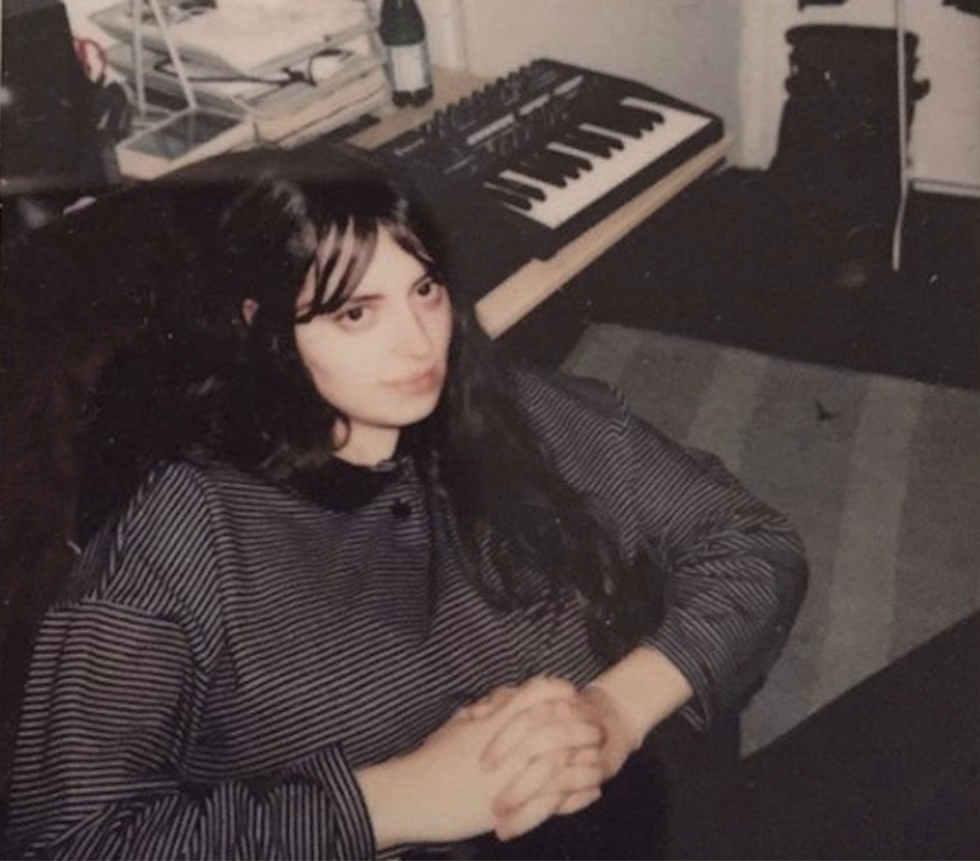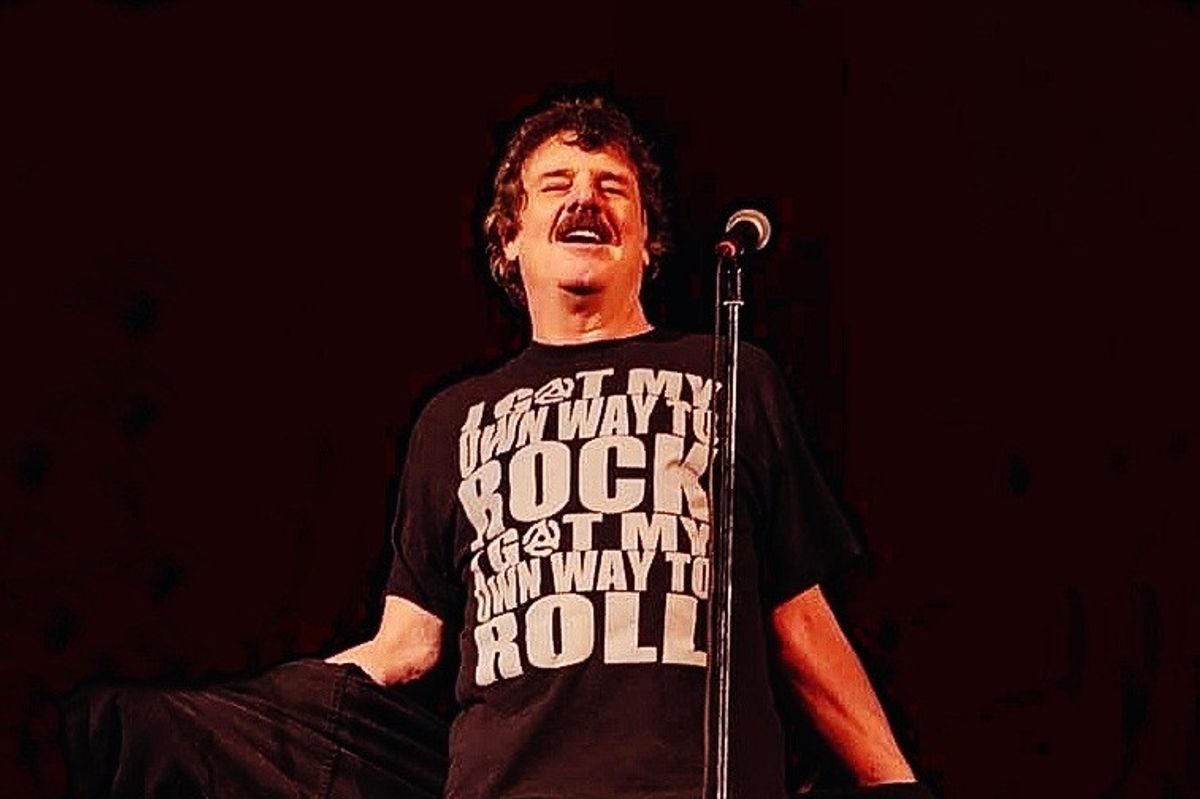Five Questions With… New Feeling's Katerina Stamadianos
If not dead yet, music journalism is certainly an endangered species. A collective of Canadian scribes is attempting to boost the form, and it has published two issues already. Here one of its key players explains more about the brave venture.

By Jason Schneider
For those in the generation of pre-Internet music obsessives, life often revolved around devouring the latest issues of Rolling Stone, NME, and countless other publications that covered our favourite artists and introduced us to new ones. Although remnants of that linger in print, the transition to Internet-based music journalism over the past 25 years has been rocky, to say the least.
The explosion of content now available at our fingertips has completely transformed the relationships artists have with their audiences, with the trade-off for music journalists being that the click-bait age has greatly diminished fair financial compensation, as well as opportunities to simply write about artists or broader cultural topics they feel passionately about.
Earlier this year, a group of Canadian writers set out to challenge this reality by creating a new model for music journalism with New Feeling, an online publication run as a multi-stakeholder co-operative with a goal to expose innovative emerging artists from all parts of the country, as well as provide a platform for writers to engage with important music-related subject matter.
At this point—two issues in—New Feeling remains a labour of love, but work is ongoing to build a financial structure to pay for all published work. For the time being, however, New Feeling has quickly emerged as a vital outlet for cutting edge sounds and ideas being generated within Canada. Submissions for the December issue—with the theme of “Economics”—are being accepted until Nov. 6 at newfeeling.ca, and we spoke with co-founder Katerina Stamadianos to find out more.
How do you describe how the concept for New Feeling came together, and how are things going so far?
While New Feeling wasn’t created because of the pandemic, it is largely a product of it. Covid-19 brought about the closure of several publications internationally, live music was put on hold, and freelancers were put in particularly difficult positions, especially related to pandemic supports. But the conditions that had made writing—and in particular, music writing—a precarious profession had been present for some time. New Feeling was borne out of the idea that Canadian music writers could reclaim their autonomy while spearheading a community-based, equitable, and earnest project. That’s what inspired its conception as a cooperative.
In more specific terms, [co-founder] Michael Rancic tweeted out looking for people who might want to participate. When that group originally met, we realized that we would have to take several steps to actually create something truly cooperative and community-based. The last six months or so have been centred on building that out and opening ourselves up to as many people as possible, and finding ways to engage with artists and writers that have traditionally been left out of Canadian music media. It’s a work in progress, and since our goals are set at a pretty high bar, we know we have a long road ahead. But it’ll be worth it.
So far, everything is going great. On the editorial front, we’ve put out two issues—with the themes of “Renewal” and “the Fear”—to very kind reviews and encouraging engagement. We will be releasing our third issue in mid-November, and have exciting pitches in the pipeline for our December issue. On the operational end, we’ve gotten the hang of our working group structure and have had productive meetings with our Steering Committee, which is helping us formulate the foundational documents required for our incorporation as a cooperative.
Why did you personally want to get involved with New Feeling?
I’m not a freelancer and only really dabbled with music writing in university, but I have always been really devoted to the pursuit of good music. I’ve also spent a few years studying things like urban policy, with a particular interest in creative/DIY spaces, having seen how our cities tend to cannibalize the very things that made them special to begin with. This is closely tied to the idea of localness and sustainability, two things that are linked to New Feeling’s mission.
When Michael sent out his call for collaborators, I was originally hesitant given my lack of experience. But I’ve come to see my value to the cooperative quite clearly and have written things I’m really proud of. I couldn’t have done that without the encouragement of the team. In many ways, my involvement is emblematic of what we’re hoping to do with many others—extend a hand to people starting out or who haven’t been afforded such opportunities in the past, and offering our mutual support and platform to grow.
Music journalism has obviously changed a lot over the past few years. What do you hope the long-term impact of New Feeling could be?
I hope that New Feeling inspires people to be more conscientious with their music listening, not just in regard to their taste but with how they support musicians and writers. It’s a field that’s generally been devalued from a monetary standpoint while remaining incredibly important to everyone, especially as a coping mechanism during the pandemic. If we can even just contribute to more people directly supporting artists, investing in the publications they enjoy—ours and others—I will be happy. But I do hope that New Feeling comes to be known as a place where readers can reliably turn to for accurate and representative coverage of Canadian music.
Your focus is clearly on Canadian artists who don't generally receive mainstream attention. But with this year's Polaris shortlist as an example, do you think audiences are starting to embrace more experimental music?
This year’s Polaris shortlist was an encouraging step in the right direction, and it was great to see so many “underground” artists shine, especially Backxwash, the winner. But I wouldn’t necessarily tie this success to the Canadian audience, which is so varied in its preferences and priorities. I’d say that the audience for “underground” or experimental music has always been there, but hasn’t really been reflected in the music media apparatus. Feedback in our 2020 Reader Survey reflects this; there’s broad acknowledgement that the same artists tend to get highlighted and that publications are not willing to take on coverage of smaller, more interesting musicians.
Who are some artists that you'd like to see get more exposure?
Personally, and this is a very abridged list, I’d like to see more exposure for Sydanie, Pansy Boys, Yves Jarvis, Juniper Bush, Hiroki Tanaka, Ciel, E-Sagilla, Prince Josh… I can go on!
















